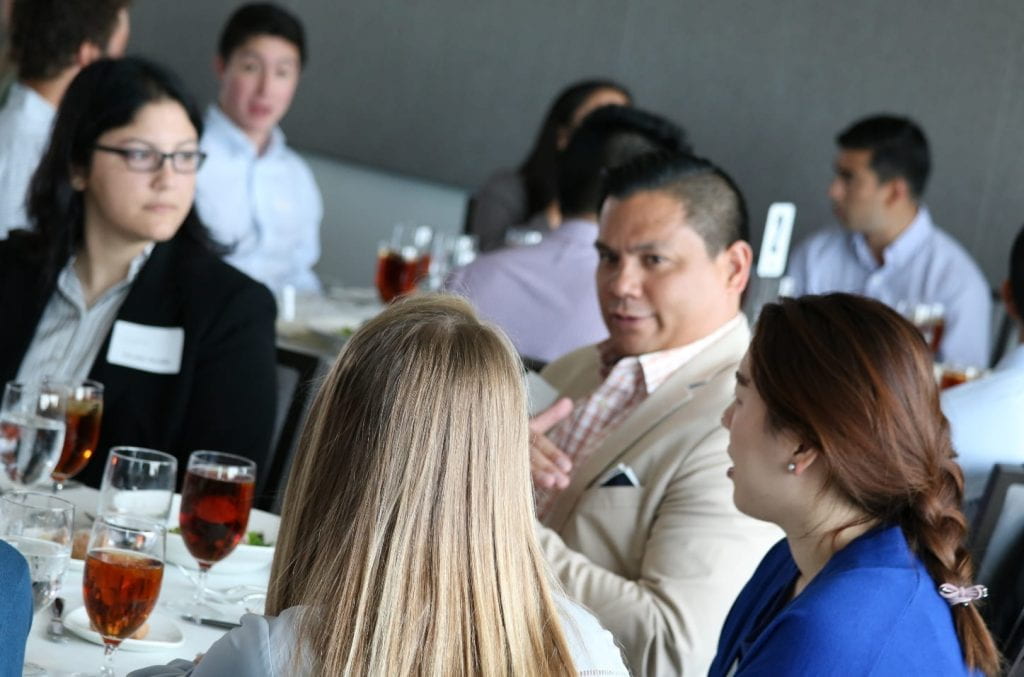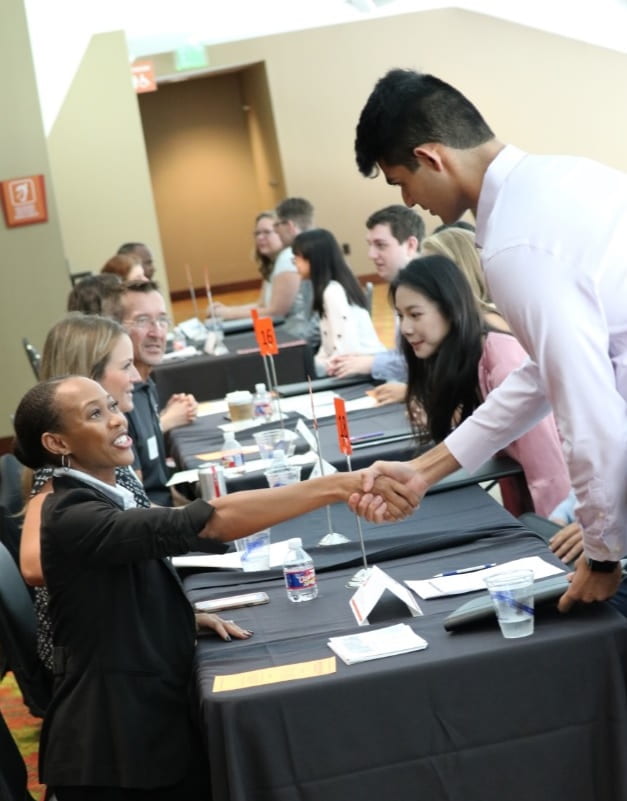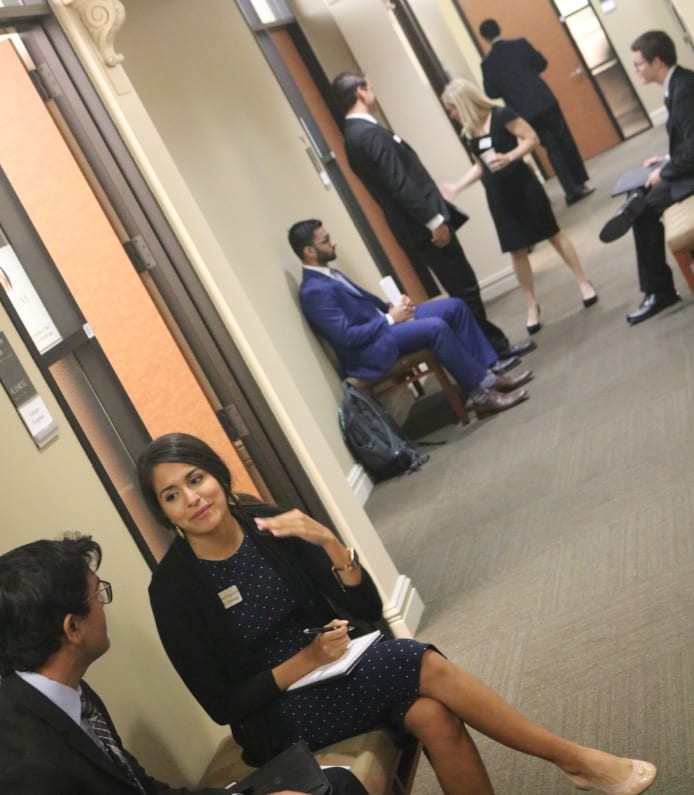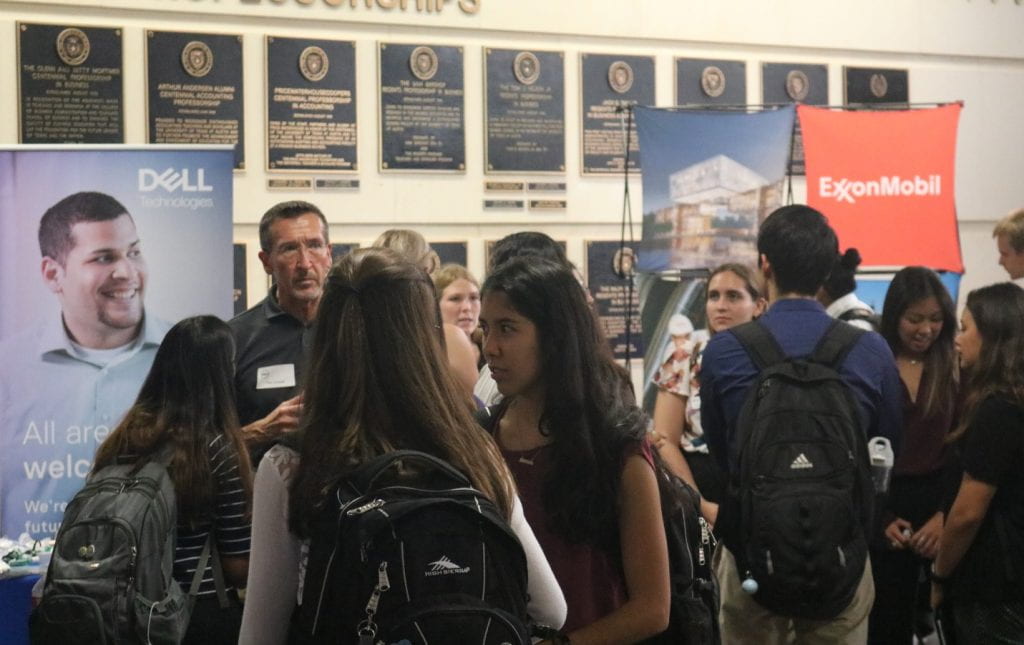Data analytics and artificial intelligence are redefining the profession and McCombs is keeping page. Story by Judie Kinonen.
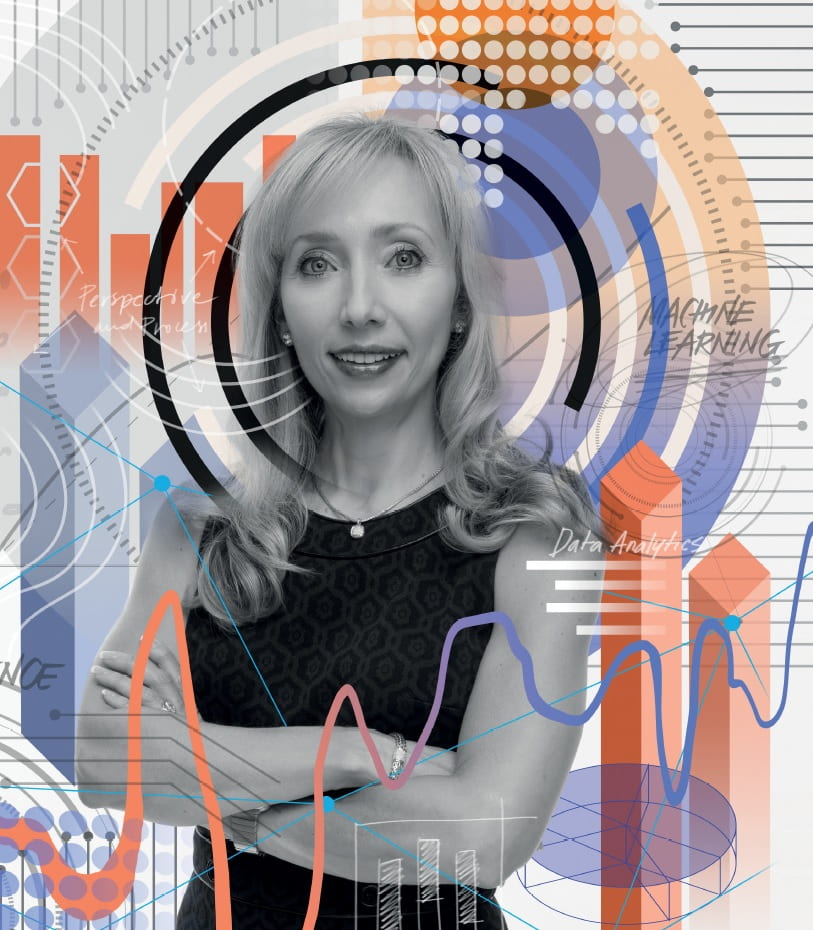
Nichole Jordan, BBA ’95, says new technologies are rapidly transforming the accounting profession.
The stereotype of the solitary accountant walled up in a cubicle and poring over spreadsheets for eight hours a day was always a little dubious. But industry expert Nichole Jordan, BBA ’95, says new technologies that are rapidly transforming the accounting profession have shattered the image of the bean-counting accountant on a mundane career path.
A CPA and member of the McCombs Accounting Advisory Council, Jordan is also national managing partner of growth and performance at Grant Thornton. “I see new staff coming to the firm with the desire and ambition to contribute at a higher level — to do the more strategic and analytical parts of the job,” she says.
Her own role with Grant Thornton sends her all over the world, meeting with business management teams and boards to listen to their concerns and introduce them to new technologies and digital strategies.
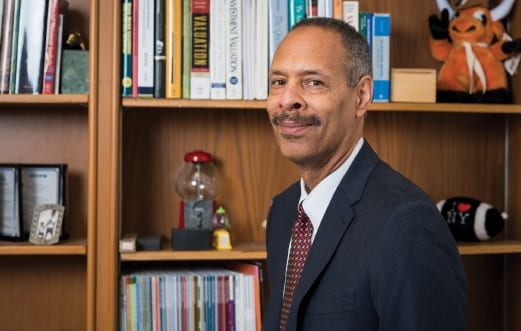
Department Chair Michael Clement remembers noting that UT Austin’s accounting program ranked No. 1 when he was in college in 1980.
Deciding how to properly address these trends in the classroom at McCombs is top priority, says Department Chair Michael Clement.
“My main concern right now is to make sure our students can thrive in the world of big data,” he says, noting shifts in the curriculum are starting in the Master’s in Professional Accounting program, with reverberations in the undergraduate and doctoral programs likely in the near future.
All three programs have topped the national rankings for so long that it is hardly news anymore. Clement vividly recalls a day in 1980, his senior year at Baruch College in New York City, when he walked past a bulletin board listing the top accounting programs in the country. “UT Austin was No. 1, and then I noticed that half of my textbooks were written by UT faculty,” he recalls.
Again this year, the undergraduate, master’s, and doctoral programs at McCombs ranked No. 1 in U.S. News & World Report. The undergraduate program has held the first- or second-place spots on that list for a straight 28 years, the master’s degree for 26, and the doctoral program for an 11th year.
But Clement attests that there’s a revolution afoot, leaving the department no time to rest on its laurels. “There’s a lot going on in the industry, and we want to give our students the tools so that when things change, they can adapt to those changes,” he says.
To that end, the MPA Program recently adopted a proposal requiring every course within the next two years include content on data analytics, says MPA Program Senior Director Stephen Smith.
THE WEIGHT OF DATA
What’s new in accounting is not the idea of analyzing data — the difference is in the type of data itself. Typically, accountants are trained to handle and analyze structured data that can be easily organized and searched.
But in this era of big data, accountants must also manipulate unstructured data that appears in myriad formats and without pre-defined models. Unstructured data is more challenging to organize and search.
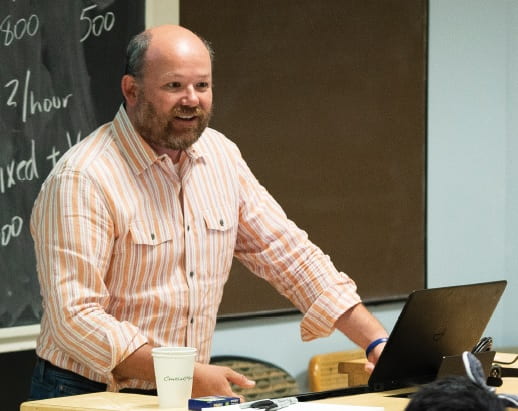
MPA Senior Director Stephen Smith stays in close contact with industry partners in order to better understand how big data disruptions are transforming the profession.
Big data is causing disruption in many industries, but deciding what it means for accountants is a bit of a moving target, says Smith, who is in close communication with industry partners about how they are coping with these new forms of information.
They tell him that the skill of data cleansing is among an accountant’s greatest assets today. In the past, an auditor calculating interest expense on loans at a bank would simply sample — taking, for example, 100 out of the possible 1,000 loans and manually calculating the interest. “If you didn’t find any problems for those hundred loans, then you assume the whole interest expense line on your income statement is okay,” department chair Clement says.
But today, there’s no need to sample, he says. “Now I can do that calculation for all thousand loans and know for sure that the interest calculation is correct.”
Beyond that, today’s auditor may be asked to produce a report that includes information from several different sources. It could be customer information in one file, loan descriptions in another, Clement says.
“In order to combine all those different sources into a single, usable source, you have to have solid data manipulation and data cleansing skills.”
The ability to test every transaction has other repercussions too, says Jeff Johanns, senior lecturer at McCombs and a former partner and assurance risk management leader at PricewaterhouseCoopers.
“If you’re testing 100 percent of transactions rather than sampling, instead of five exceptions, you may have dozens of exceptions,” he says. “Now what? What does that mean to you as an auditor? These are the things that we have to train accountants to deal with. Just because the software produces this beautiful graph is meaningless if the accountant doesn’t know what to do with it.”
“TELLING A STORY” WITH DATA
“So more and more an accountant’s job is answering the question, ‘What is the data telling us?’” says Smith.
That’s the important question, says Jordan. “Technology is crunching the numbers to a greater extent and making it possible for us to be more strategic and analytical when it comes to identifying patterns in the data,” she says. “The job becomes more about understanding the real performance of the business.”
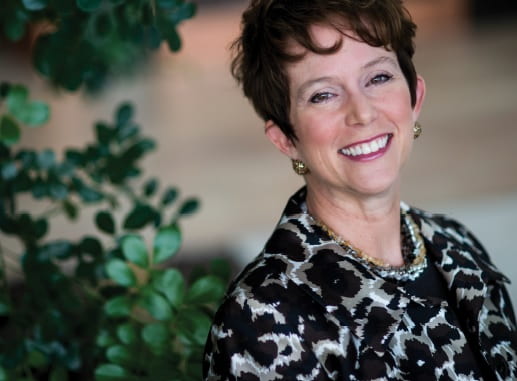
Patti Brown, MPA ’89, uses a hands-on approach for teaching accounting because it instills confidence in her students.
These are skill sets already addressed in several McCombs MPA courses, including Information Technology for Accounting Control — a requirement for all MPA students — taught by Patti Brown, MPA ’89, who joined the faculty as a lecturer in 2011.
Brown says her teaching approach is twopronged: introducing the technology tools and business process methodologies, and then providing students with large volumes of real data in case studies in which they can apply the technology tools to gain insights from the data. “It’s very hands-on to help students gain confidence in working with various technologies,” she says.
Students in her class learn SAP, Tableau, Microsoft Access, and Power BI, but hers is not a static curriculum. “Given that the technology and emerging technologies are rapidly changing, I constantly have to look at what I’m offering in the course,” says Brown. “I stay connected to partners in public accounting and large companies that are hiring our students to understand what technology they’re using and how to best prepare our students.”
MPA students work with real industry data from the SAP University Alliance, which is not available in many other accounting master’s programs — and in Brown’s class they begin with data from a national coffee shop chain. Using Tableau, students go beyond number crunching and learn to “tell a story,” Brown says.
“Often, in academia, students are focused on getting the ‘right answer,’” she says. But in this coffee shop case, she asks them to identify three areas that the company should focus on for profit maximization. “So, I’m not looking for one specific right answer,” she says.
Instead, students are challenged to use their critical thinking skills, Brown says. “Why did the coffee shop spend this much in marketing in the Northeast? Why did green tea in the South not do as well as the Northeast? I want them to tell the story and point out the different insights that they’ve gained through their analysis.”
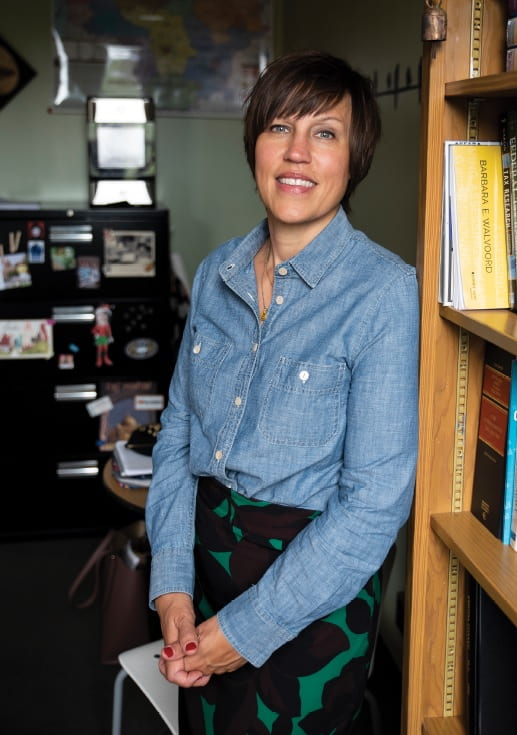
Senior Lecturer and Assistant Department Chair Kristina Zvinakis said that critical thinking skills are a hallmark of McCombs’ MPA program.
It’s not exactly the type of task accountants are traditionally known for, but it’s not a huge stretch either, says Kristina Zvinakis, senior lecturer and assistant department chair. Critical thinking skills have always been a hallmark of McCombs’ MPA program and one reason it is consistently ranked No. 1 in the nation, she says.
SOFT SKILLS STILL APPLY
The disruption in accounting mirrors what has happened in other fields, Jordan says, and it’s no cause for alarm for those willing to adapt. “Technology will change, but not replace, the accountant’s job,” she says. “An accountant paired with artificial intelligence or machine learning-enabled technology is a winning combination.”
In fact, for new accountants, proficiency in technology and critical thinking is not more important than the skills Jordan says she most remembers learning from her time at UT: teamwork and communication.
“The ability to build relationships will definitely become more important than it is today,” Jordan says. “I think that because of artificial intelligence, the mundane and the more basic types of work will become more automated in our profession. This means we can focus on other important things.”
With new technologies doing more of the tedious work, the accountant of the future will have more freedom and flexibility. Says Jordan: “Your ability to go down the hallway and talk to the CFO and engage in a great C-suite conversation, ask the right questions, and seek to understand and be curious will be very, very important skills.”
Read more about the latest news and happenings at the McCombs School of Business in McCombs Magazine.

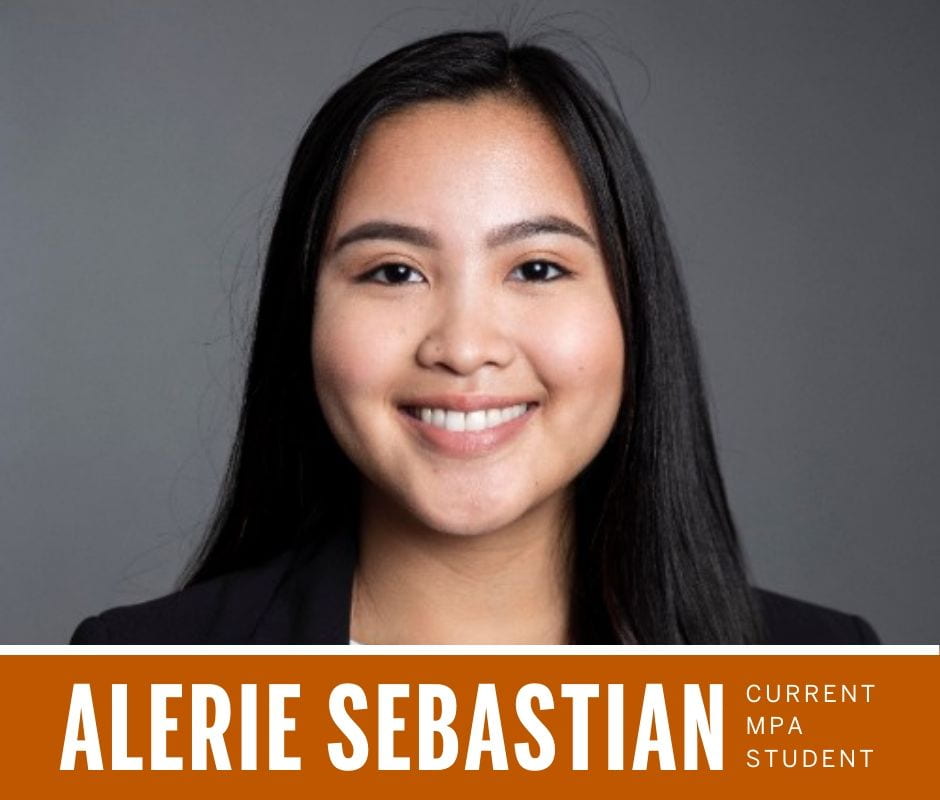

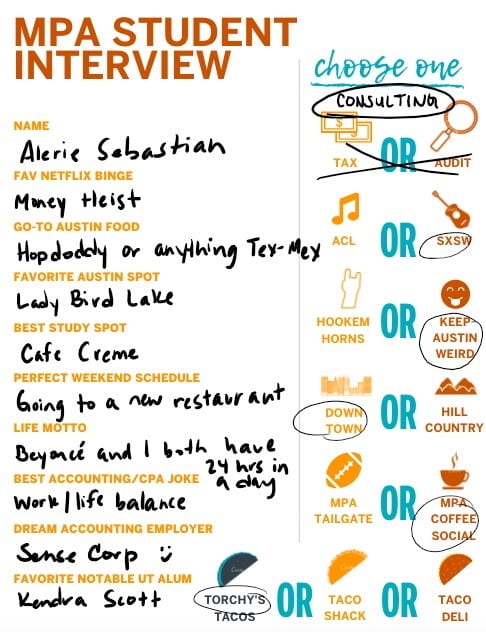
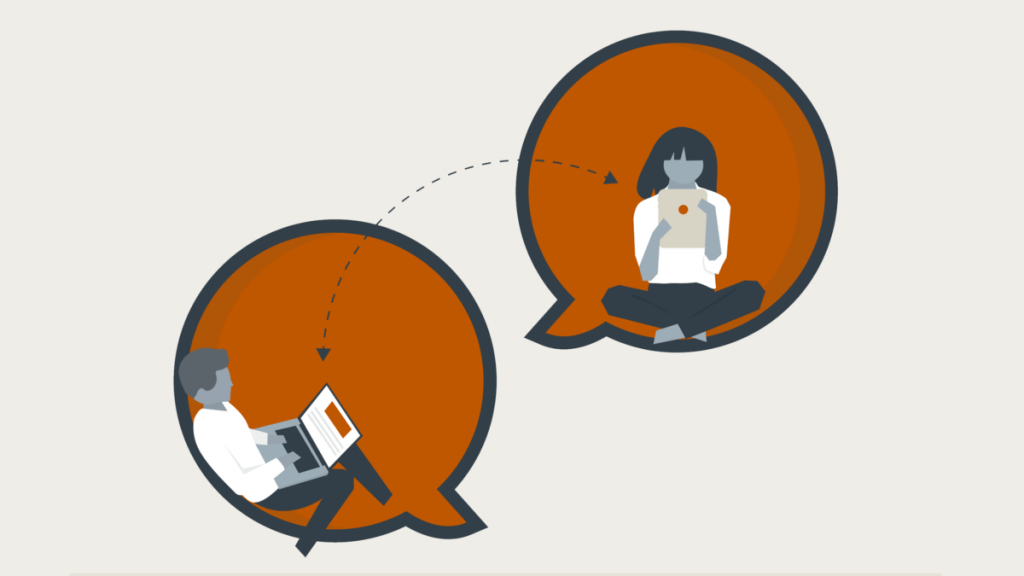



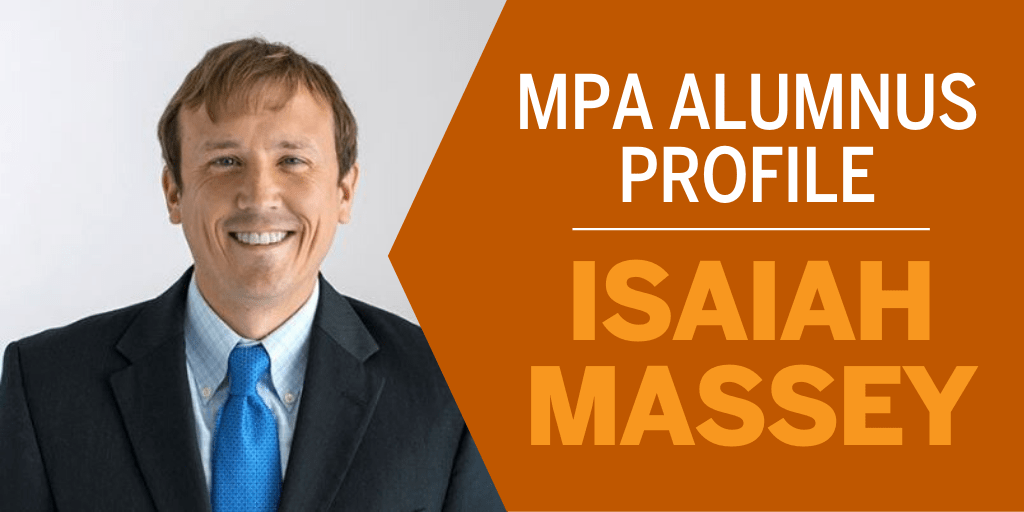
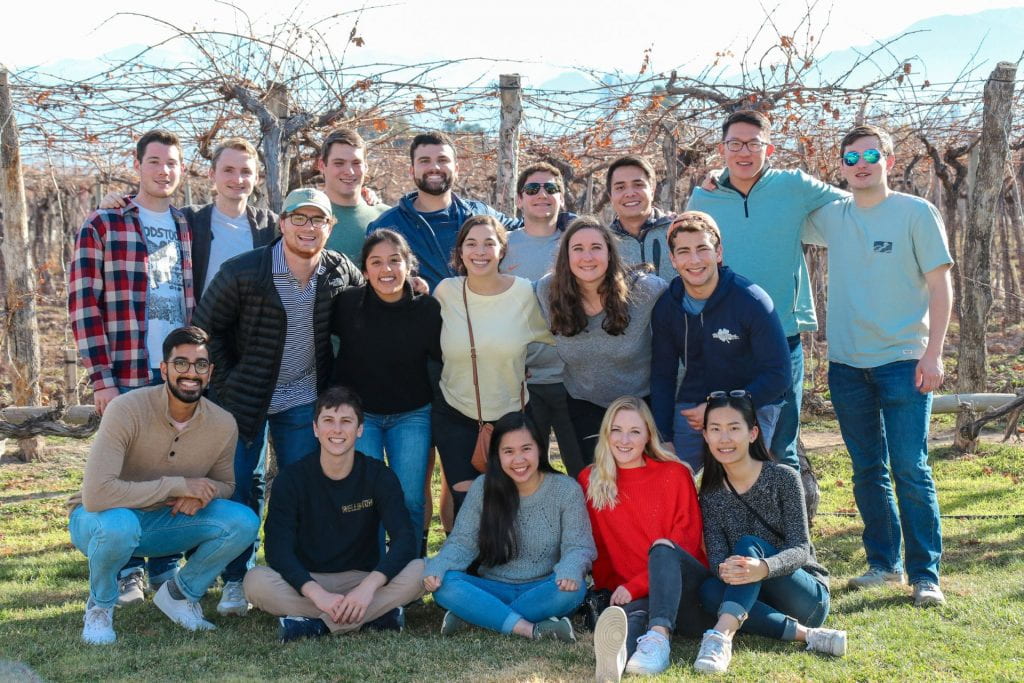
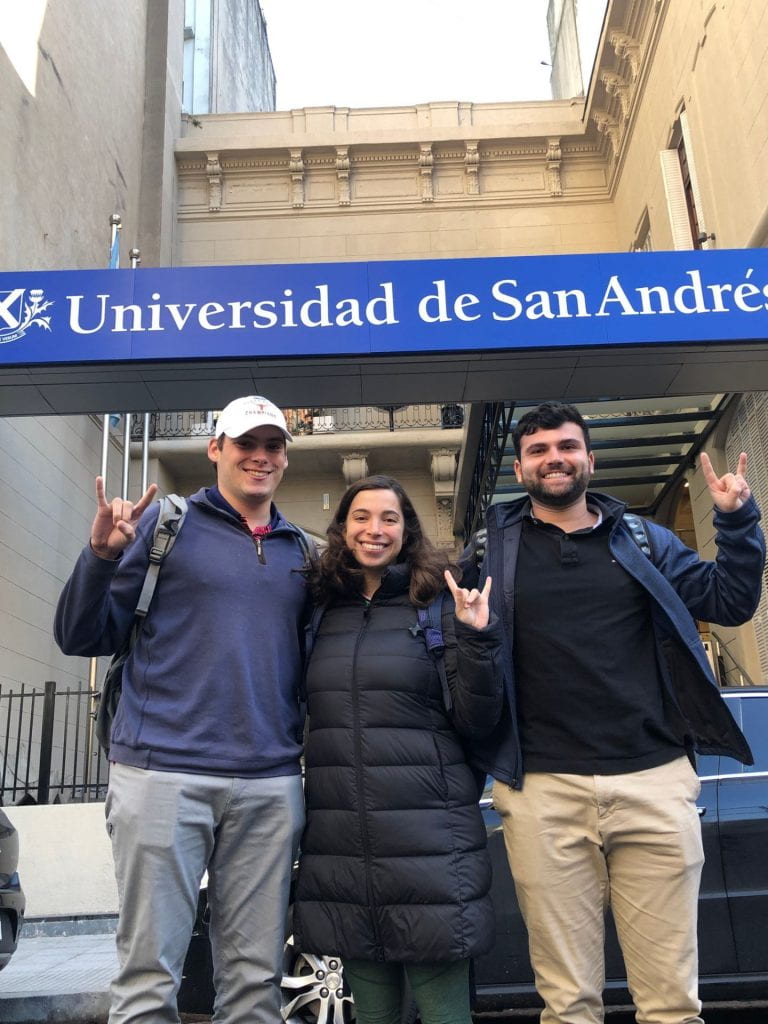





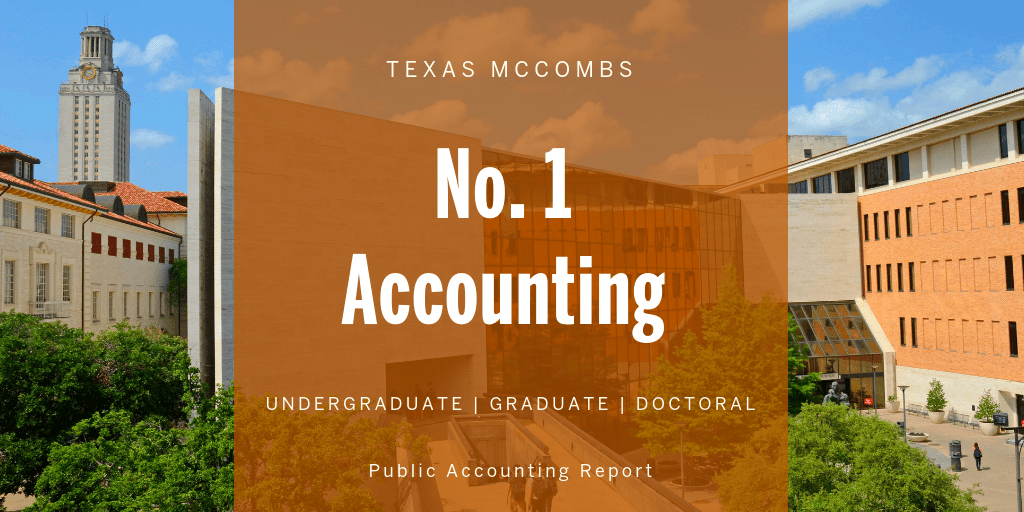
 Awaiting an organ transplant for yourself or a loved one means delays that can be agonizing — and costly. Every day, 20 patients on U.S. waiting lists die before an organ becomes available, according to the
Awaiting an organ transplant for yourself or a loved one means delays that can be agonizing — and costly. Every day, 20 patients on U.S. waiting lists die before an organ becomes available, according to the 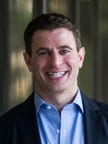 This Fall our Department asked me to teach the four classes of the (introductory) Financial Accounting class to our Full-time MBAs in addition to six sections of Financial Statement Analysis (across 5 of our graduate programs). While this uniquely high course load will be an incredible challenge, I am absolutely excited to have this opportunity, which began this past week.
This Fall our Department asked me to teach the four classes of the (introductory) Financial Accounting class to our Full-time MBAs in addition to six sections of Financial Statement Analysis (across 5 of our graduate programs). While this uniquely high course load will be an incredible challenge, I am absolutely excited to have this opportunity, which began this past week.